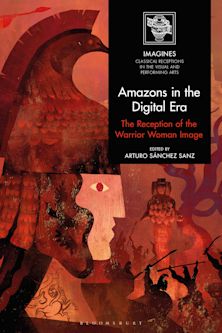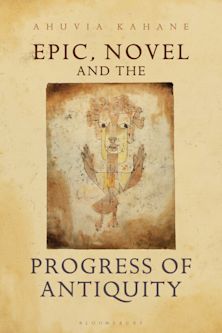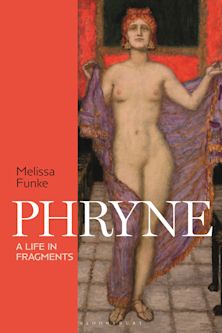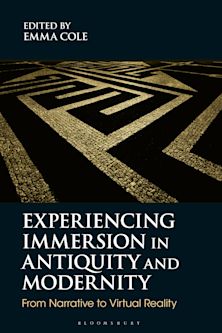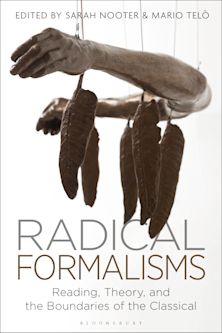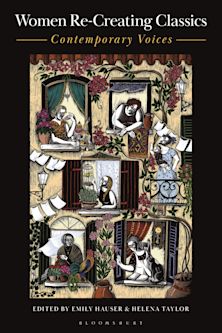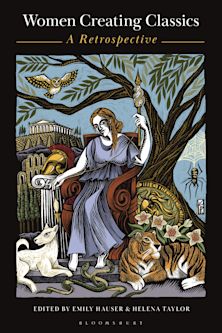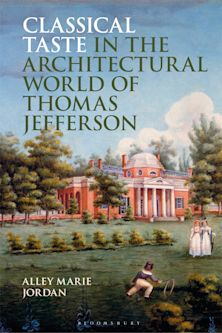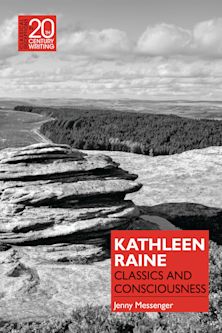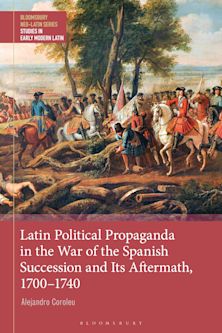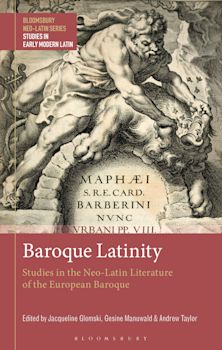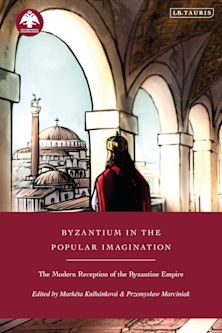- Home
- ACADEMIC
- Classical Studies
- Classical Reception
- Classical Myth in Four Films of Alfred Hitchcock
Classical Myth in Four Films of Alfred Hitchcock
Classical Myth in Four Films of Alfred Hitchcock
You must sign in to add this item to your wishlist. Please sign in or create an account
Description
Classical Myth in Four Films of Alfred Hitchcock presents an original study of Alfred Hitchcock by considering how his classics-informed London upbringing marks some of his films. The Catholic and Irish-English Hitchcock (1899-1980) was born to a mercantile family and attended a Jesuit college preparatory, whose curriculum featured Latin and classical humanities. An important expression of Edwardian culture at-large was an appreciation for classical ideas, texts, images, and myth. Mark Padilla traces the ways that Hitchcock’s films convey mythical themes, patterns, and symbols, though they do not overtly reference them. Hitchcock was a modernist who used myth in unconscious ways as he sought to tell effective stories in the film medium. This book treats four representative films, each from a different decade of his early career. The first two movies were produced in London: The Farmer’s Wife (1928) and The Man Who Knew Too Much (1934); the second two in Hollywood: Rebecca (1940) and Strangers on a Train (1951). In close readings of these movies, Padilla discusses myths and literary texts such as the Judgment of Paris, The Homeric Hymn to Demeter, Aristophanes’s Frogs, Apuleius’s tale “Cupid and Psyche,” Homer’s Odyssey, and The Homeric Hymn to Hermes. Additionally, many Olympian deities and heroes have archetypal resonances in the films in question. Padilla also presents a new reading of Hitchcock’s circumstances as he entered film work in 1920 and theorizes why and how the films may be viewed as an expression of the classical tradition and of classical reception.
This new and important contribution to the field of classical reception in the cinema will be of great value to classicists, film scholars, and general readers interested in these topics.
Table of Contents
Illustrations
Preface
Introduction
One: Hestia's Hearths and the Judgment of Paris in The Farmer's Wife
Two: Eleusinian Mysteries and Heroic Catabasis in the 1934 The Man Who Knew Too Much
Three: The Heroine Pattern of Cupid and Psyche in Rebecca
Four: Crisscrossing Strangers on a Train with the Homeric Hymn to Hermes
Appendix
Story Summaries
Product details
| Published | Sep 30 2016 |
|---|---|
| Format | Ebook (Epub & Mobi) |
| Edition | 1st |
| Extent | 336 |
| ISBN | 9781498529167 |
| Imprint | Lexington Books |
| Illustrations | 53 b/w photos; |
| Publisher | Bloomsbury Publishing |
About the contributors
Reviews
-
One rarely finds a more exciting book on Hitchcock, or indeed on any movie director, than this one by Padilla (classical studies, Christopher Newport Univ.)... [T]he observations are detailed and perceptive. The classical themes Padilla finds are mostly from Homer and Virgil. The Farmer's Wife (1928) brings in Hestia and the judgment of Paris (and includes telling symbols: fireplace, pants, sheep, cupid); The Man Who Knew Too Much, the Eleusinian mysteries (symbols: bull, teeth, hair, seasons, eating, storms, labyrinths, metal); Rebecca, Cupid and Psyche (symbols: the sea, windows, Valhalla, pig, picnic baskets); Strangers on a Train, Hermes, Venus, Pan, and Hercules (symbols: architecture, chains, sores, Mt. Olympus, eyeglasses, shoes, lobsters, cow, calf, watches, satyrs, statues, goats, Cerberus). Provocative and demanding, the book is invaluable, and it includes hundreds of footnotes and bibliographical references. Summing Up:Highly recommended. Upper-division undergraduates through faculty.
Choice Reviews
-
Mark Padilla's study on the role of classical myth in the movies of Alfred Hitchcock is an intriguing piece of scholarly work. Strongly embedded within the ever-expanding scholarship on the reception of classical antiquity in cinema, his book sets out to explore how mythological stories, symbols, motifs and archetypal themes influenced narrative structures and character developments in Hitchcock's films over a time span of ca. 25 years (1928-1951)…. Through a careful selection of texts, sculptures, paintings and archaeological objects, Padilla meticulously deconstructs each of these films, and analyses how classical sources repeatedly shaped story patterns and character actions. Padilla hereby never tries to fit his reasoning into one fundamental source myth, opting instead for a more complex-and therefore more rewarding-interpretation…. In the end, Padilla has produced an exceptionally learned and informative study. He ultimately succeeds in illuminating Hitchcock's eclectic and arbitrary use of classical myth in his filmmaking process, while at the same time revealing a much neglected yet crucial aspect of the director's multi-layered film language. In doing so, he makes a strong case for the universality of mythical stories, as well as their everlasting narrative power in popular culture.
The Classical Journal
-
[Padilla's] work expands the terrain of classical reception studies because his analysis of Hitchcock and myth opens up the director’s unacknowledged development in a classics-rich background as a new area of investigation. This book needs to be read by anyone interested in myth and film, Hitchcock, or reception studies.
Bryn Mawr Classical Review
-
Aimed at a wide audience, which includes lovers of the seventh art in general but also the students of the current reception of classical authors, Classical Myth in Four Films of Alfred Hitchcock is the result of long years dedicated to the investigation of the filmography of this director, including visits to the sets of filming and to the main archives and libraries in which his legacy is conserved.
FILMHISTORIA Online
-
The book offers sustained close readings of each film, and will be of great interest to film scholars interested in Hitchcock, especially those with limited knowledge of the ancient world and of classical myth. . . . there are interesting ideas here, and the level of attention to detail lavished on each film is to be admired.
The Journal of Hellenic Studies

ONLINE RESOURCES
Bloomsbury Collections
This book is available on Bloomsbury Collections where your library has access.
















